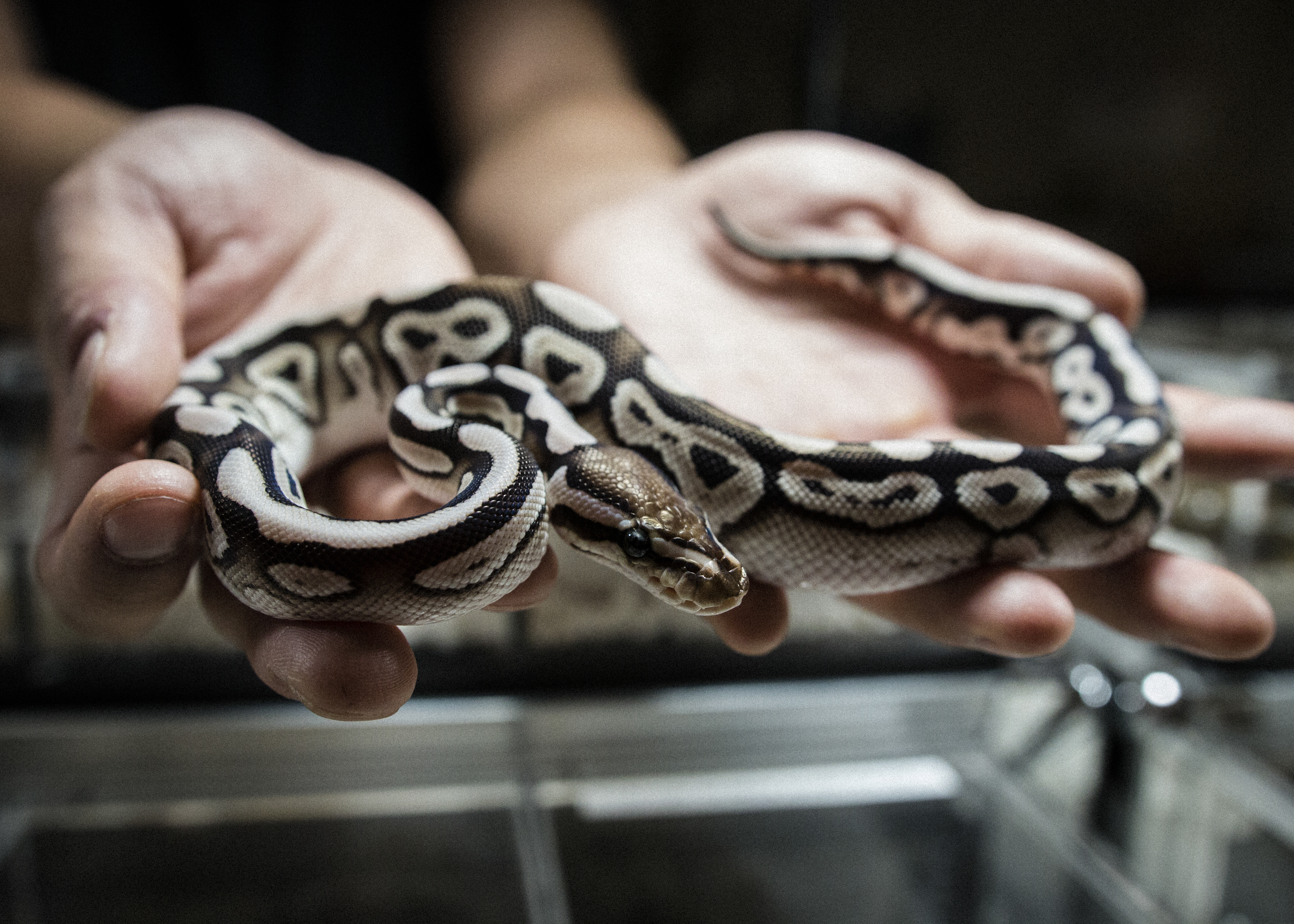News
Investigating the supply of wild Ball pythons for the global pet trade: first of a set of collaborative papers published
In an article published in Nature Conservation earlier last month, WildCRU associate Neil D’Cruze and senior researcher Lauren Harrington (together with Mark Auliya of the Zoological Research Museum Alexander Koenig, and other co-authors), describe how hunters in West Africa supply ball pythons to the global exotic pet trade. Through a process termed ‘ranching’ hunters catch gravid female snakes and collect eggs already laid, both are kept until the females have laid their eggs and then hatched, and the subsequent juveniles are exported, mostly to the USA for onward sale. The system depends on the return of females, and a proportion of the juvenile snakes, back to the wild. There are national quotas agreed with CITES for the maximum number of Ball pythons that can be exported in any one year.
Our interviews with 58 hunters and collectors in Togo, suggested that hunters also capture male and juvenile snakes, that numbers released are actually much lower than the numbers captured, and that there is little, if any oversight, in terms of what, how and where animals are released. In addition, hunters are generally unaware of quotas, and regularly hunt, and sell Ball pythons in neighbouring countries, Benin and Ghana. In reality, this means that snakes exported under Togo quotas could have originated from any of the three range states, that there are risks of local disease transmission and genetic mixing among released snakes, and that an unknown proportion of snakes are captured directly from the wild. Over three million Ball pythons have been exported from Togo, Benin and Ghana, since the first recorded exports in 1982, and 75% of hunters in Togo believe that there are now fewer Ball pythons than there were five years ago. There are similar concerns of declining wild populations in Benin, a country that has now halved their annual export quota.
This is the first of a series of collaborative scientific papers, funded by World Animal Protection, and carried out in partnership with local research teams in Togo – also covered in National Geographic. On the basis of this study, we recommend additional scientific investigation (focusing on the size and status of the wild population), better management, and enforcement of regulations, to ensure ball python populations are managed in a sustainable, legal and traceable way. However, in light of recent global events, it may be that this type of global trade of live animals is no longer sustainable – and we will be discussing some of the broader issues in forthcoming articles and papers on the subject.
-
 Ball Python for Sale at a USA Pet Expo (World Animal Protection, Neil D'Cruze)
Ball Python for Sale at a USA Pet Expo (World Animal Protection, Neil D'Cruze) -
 Python hunters, West Africa (World Animal Protection, Aaron Gekoski)
Python hunters, West Africa (World Animal Protection, Aaron Gekoski)





